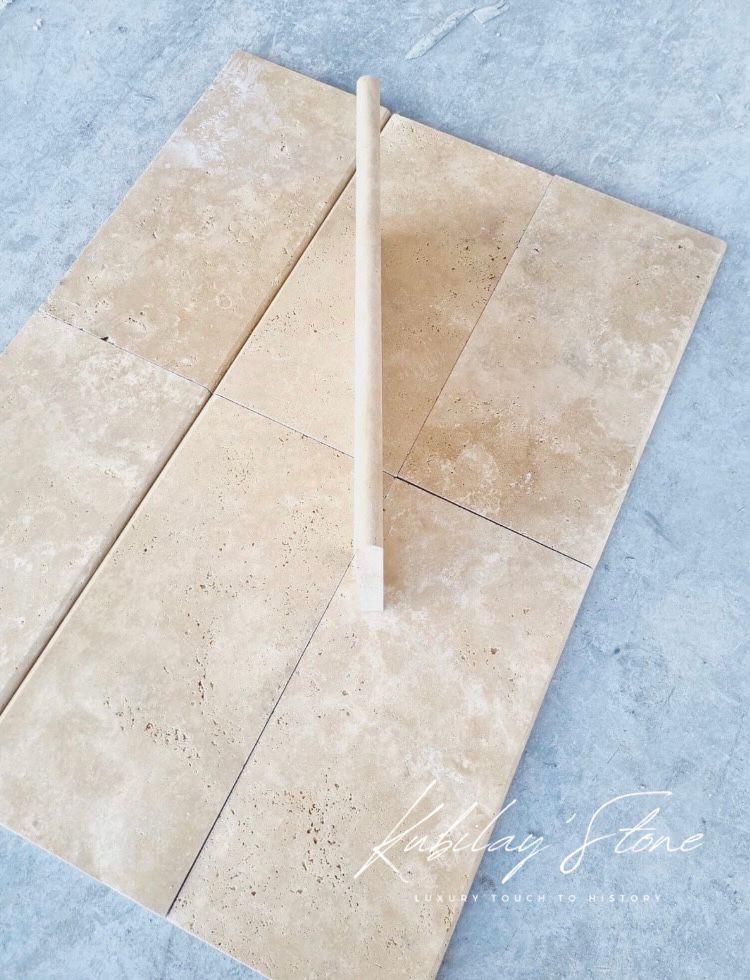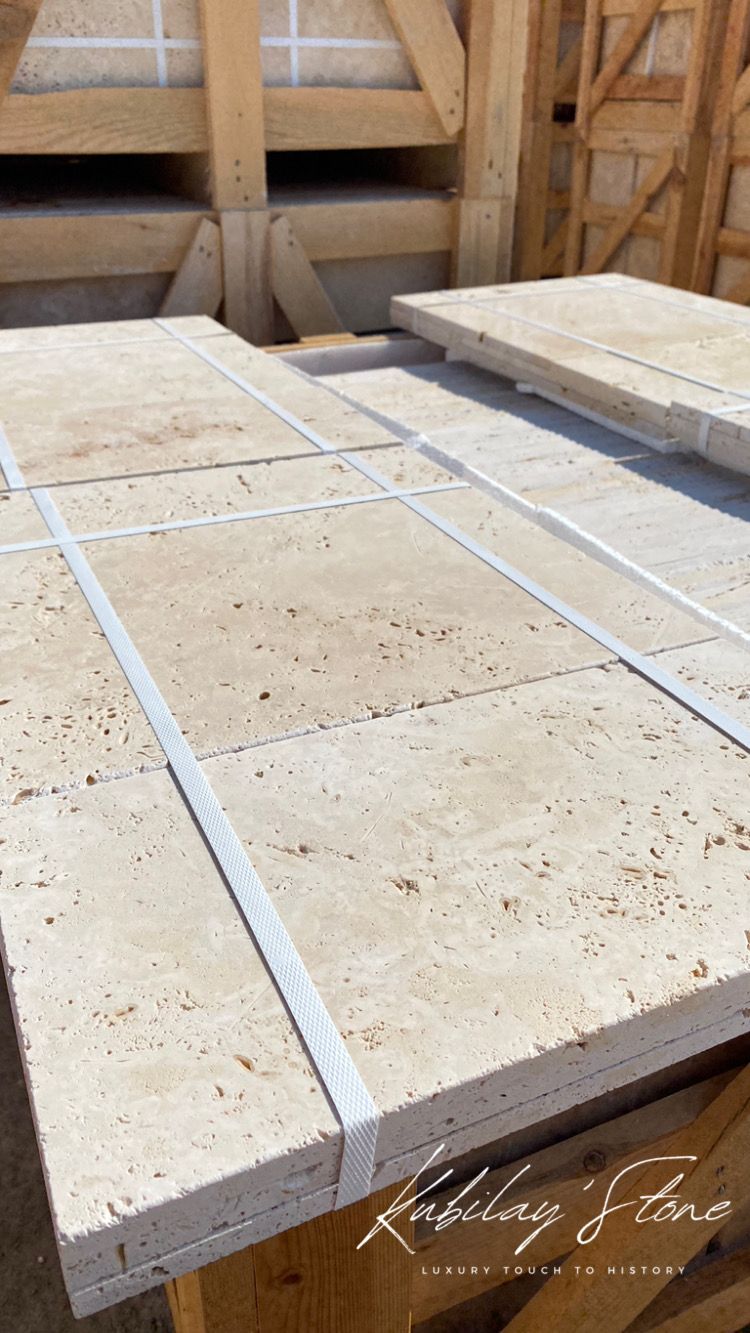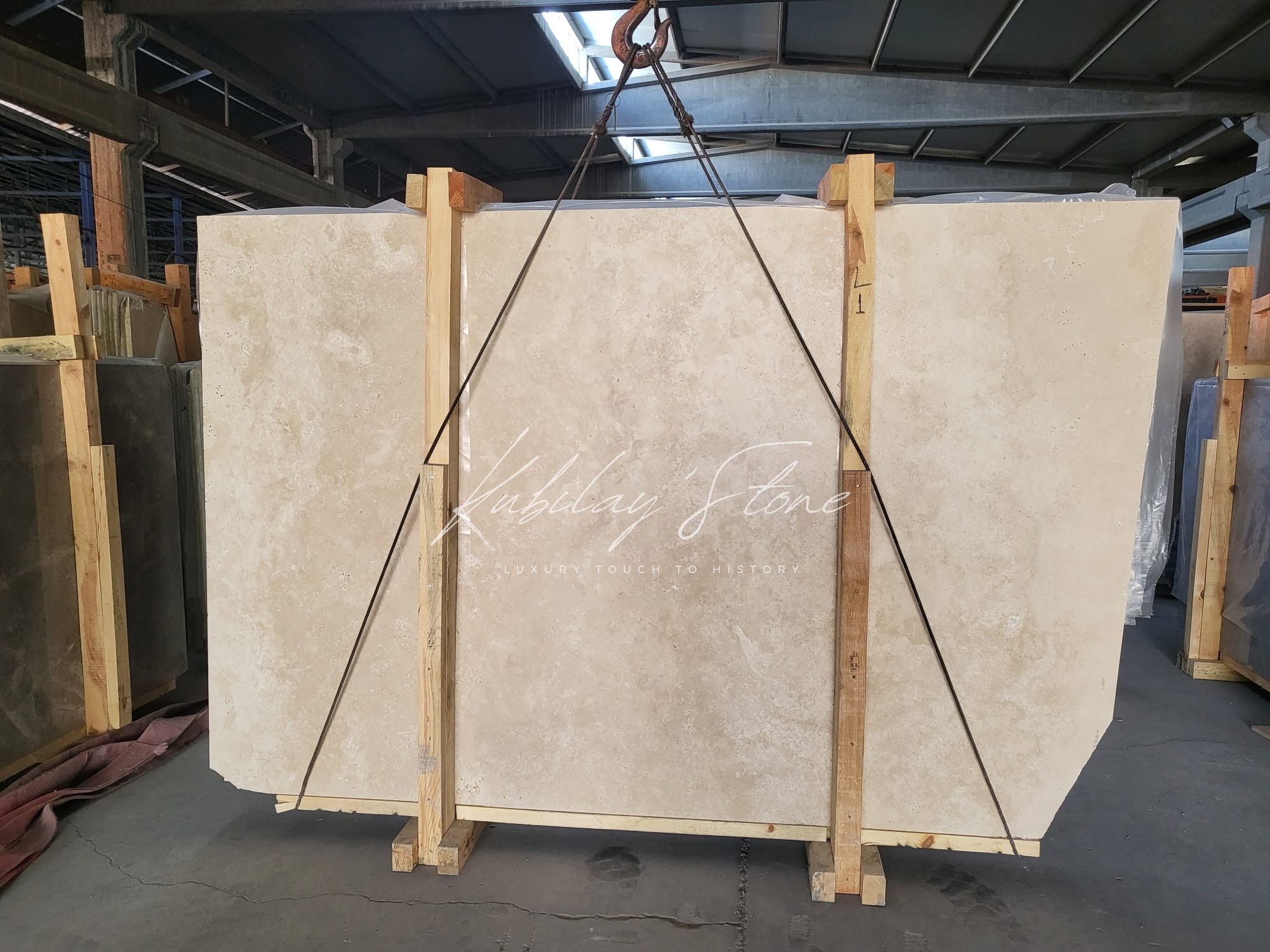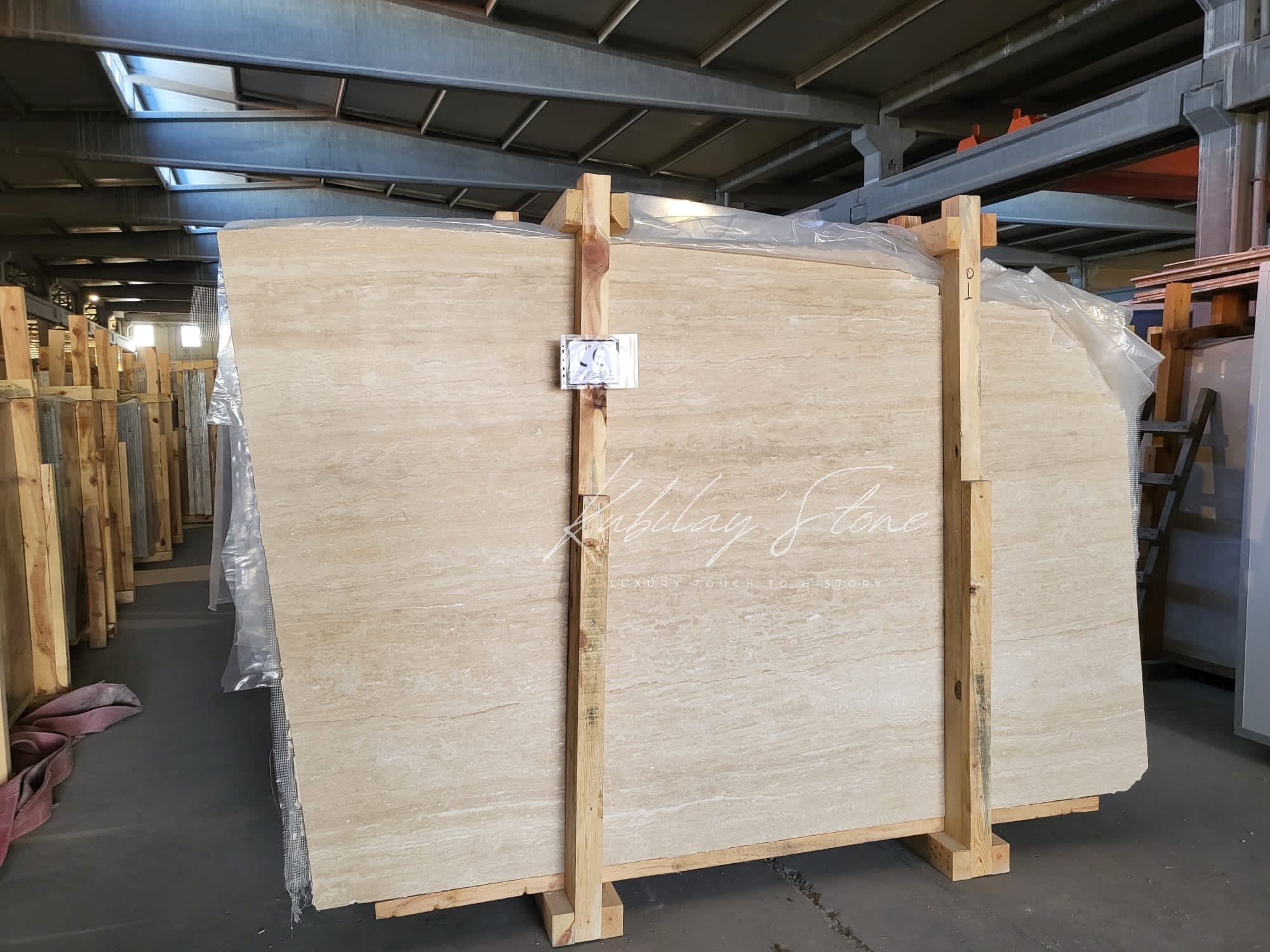Travertine reserve is very rich due to the fact that Turkey is in a tectonic zone, the prevalence of lithological units such as limestone and marble, as well as climatic conditions are favorable. Travertines in Turkey are generally formed in Plio-Kuaterner. Thin -layered, laminated, very harsh travertine precipitates formed by hot waters coming to the surface during the fractures are widely found in North Anatolia, Eastern Anatolia Fault Zone and Western Anatolian Fault Systems. However, travertine and tufa deposits can be found together in some areas.
Turkey, which is the richest country of the world in terms of natural stone reserves, is located in Alp Himalaya Mountain Zone. Denizli Basin has been the subject of different settlements in Roman, Byzantine and Seljuk periods for more than two thousand years. Ancient cities such as Hierapolis (Pamukkale), Laodikeia, Tripolis and Colossae are the leading representatives of these settlements. Turkish travertine was the most widely used building block in the construction of historical buildings in these ancient cities.

Denizli Travertine
Turkish travertines are the best quality travertines in the world. Turkish Denizli Travertine is removed from the quarries in the Ballık (Northwest of Kaklık), Kocabas, Gürlek, Karateke, Yenicekent and Gölemezli regions of Denizli. The distinctive features of Turkish Denizli Travertine are separated from other travertines in Turkey and in the world with the formation of cream and brown in different color tones.

While the colorful and high quality natural stones in Turkey are preferred by many countries of the world, the travertine in Denizli occupies an important place. With 50 percent of the travertine reserve in Turkey, 40 quarries in the Ballık Strait in the city are actively working. Pamukkale Travertines are undoubtedly the most well -known travertines in the world, which has been included in the world heritage list by UNESCO in our country. Travertines extracted from the quarries in the Ballık Strait position are 1 million years old. Pamukkale Travertines, about 20 kilometers from the region, have an age of 400 thousand years. Geologically formed in Pamukkale Travertines is still continuing.
Denizli Travertine, which gives Pamukkale whiteness, is exported to 100 countries by Kubilay's Stone.




























